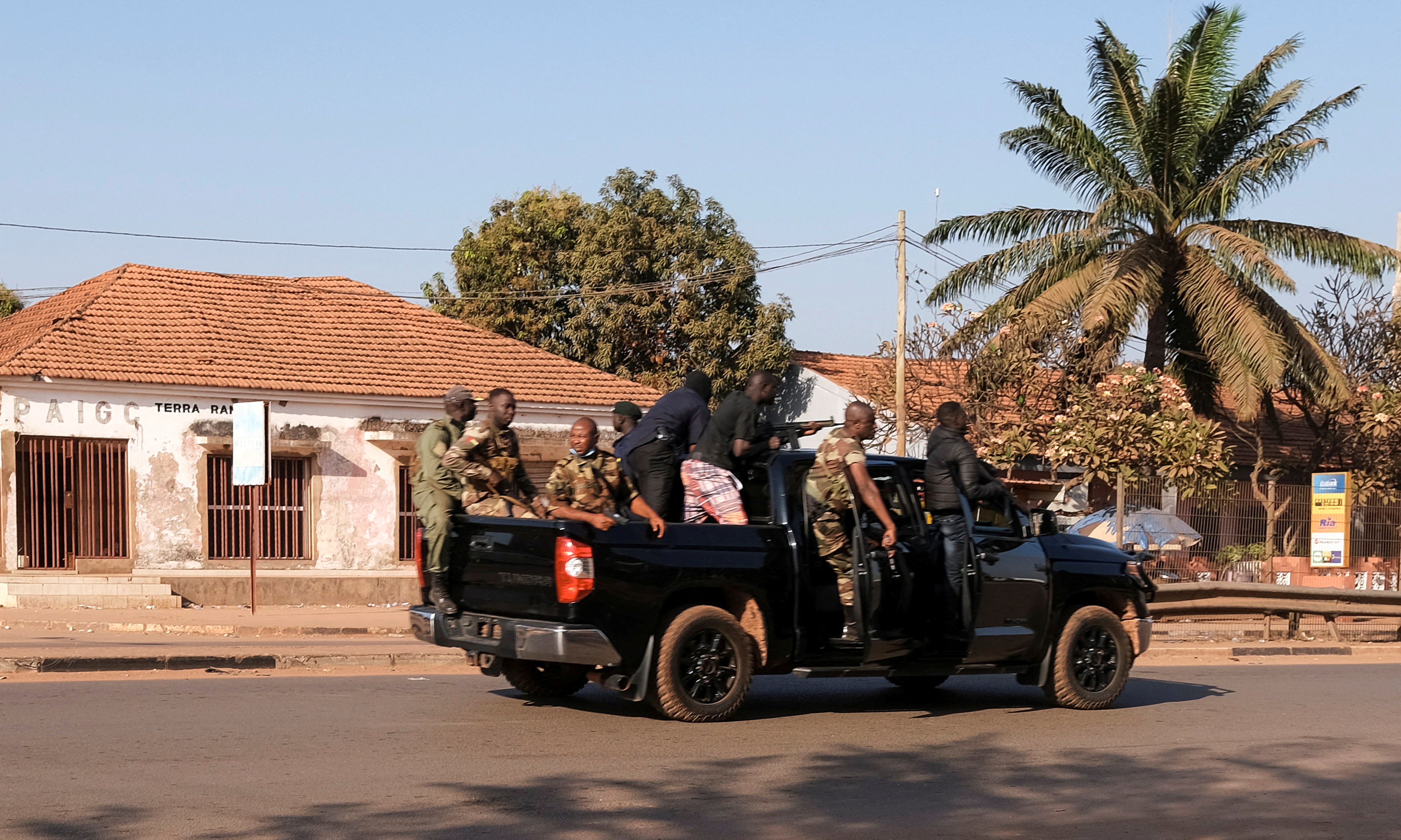Guinea-Bissau: At least six people killed in failed coup
Victims of Tuesday’s attempted coup include four attackers and two presidential guards

Your support helps us to tell the story
From reproductive rights to climate change to Big Tech, The Independent is on the ground when the story is developing. Whether it's investigating the financials of Elon Musk's pro-Trump PAC or producing our latest documentary, 'The A Word', which shines a light on the American women fighting for reproductive rights, we know how important it is to parse out the facts from the messaging.
At such a critical moment in US history, we need reporters on the ground. Your donation allows us to keep sending journalists to speak to both sides of the story.
The Independent is trusted by Americans across the entire political spectrum. And unlike many other quality news outlets, we choose not to lock Americans out of our reporting and analysis with paywalls. We believe quality journalism should be available to everyone, paid for by those who can afford it.
Your support makes all the difference.At least six people were killed in a failed attempt to overthrow Guinea-Bissau’s President Umaro Sissoco Embalo, state radio said on Wednesday, as residents of the capital cautiously returned to daily life.
The victims in Tuesday’s attempted coup included four assailants and two members of the presidential guard, according to state radio.
Mr Embalo had announced on Tuesday night that the situation was under control after gunfire rang out for more than five hours near a government compound where he was holding a cabinet meeting.
The west African country, which has a population of about 2 million, has now seen 10 coups or attempted coups since gaining independence from Portugal in 1974. Only one democratically elected president has completed a full term.
It remains unclear who was behind the attack, which Mr Embalo said was not only a failed coup but an assassination attempt.
In a video, the president suggested that not all units of the army were involved but that the attackers may have been linked to the drug trade.
Guinea-Bissau is known as a major transit point for Latin American cocaine headed for Europe, contributing to its perpetual instability.
The Economic Community of West African States (ECOWAS) commission president Jean-Claude Kassi Brou said the army was responsible, adding in a Twitter post on Wednesday: “I welcome the failure of the military coup attempt in Guinea-Bissau, which was an attack on democracy and the people”.
The main road linking the city centre to the airport remained closed on Wednesday morning since it goes past the presidential palace, but banks and shops had reopened and people were venturing out.
The failed coup came just over a week after the military in Burkina Faso, another country in the region, deposed the president.
There has been a rash of military takeovers across the region in the last 18 months, which have have undermined democratic advances since the 1990s that helped the region shed its reputation as a “coup belt”.
“It looks increasingly hard to argue against the idea of coup contagion,” said Eric Humphrey-Smith, an analyst at risk consultancy Verisk Maplecroft.
“When added to successful coups in Mali, Burkina Faso, Guinea and Chad in the past year, there is no doubt that west African leaders are nervously looking over their shoulders.”
Reuters



Join our commenting forum
Join thought-provoking conversations, follow other Independent readers and see their replies
Comments